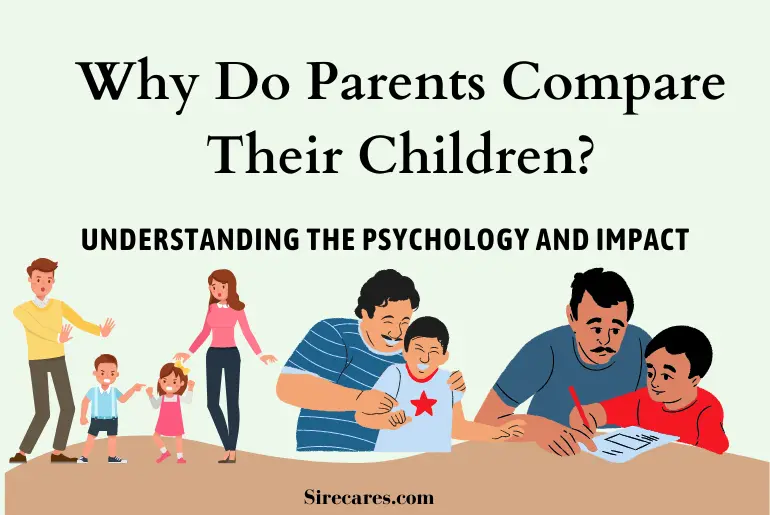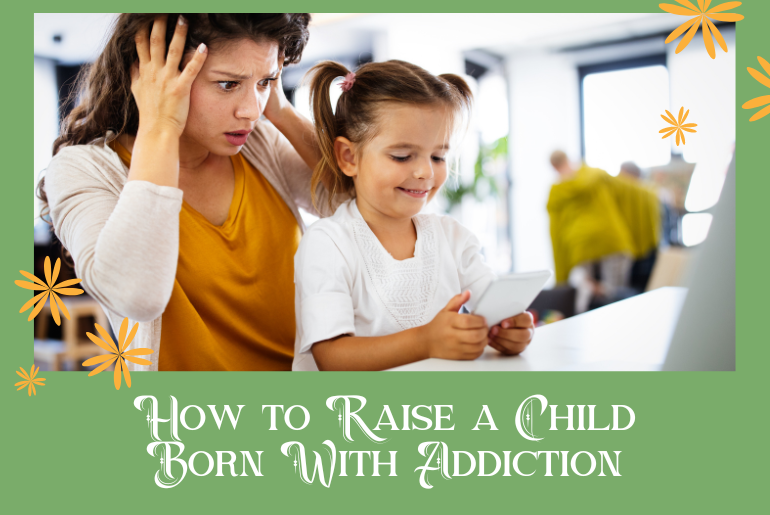In the intricate world of parenting, one question often emerges – “Why do parents compare their children?” This phenomenon, though widespread, has deeper psychological roots that impact both parents and children. This post delves into the reasons behind this tendency, its potential consequences, and ways to navigate this sensitive terrain.
Reasons Parents Compare Their Children

Comparing children is often rooted in complex emotions and societal pressures. Several factors contribute to this behaviour, some of them include:
1. The human need for comparison
It’s a part of human nature to draw comparisons. From the moment we are born, we are evaluated based on developmental milestones. As children grow, parents inadvertently compare them to their peers, often driven by the desire to ensure their child’s progress.
2. Societal pressure and norms
Society perpetuates the idea of “achievements as a measure of worthiness.” This mindset infiltrates parenting, causing parents to equate their children’s accomplishments with their own success as caregivers. The fear of being judged by others can intensify the need to compare.
3. Personal experiences and expectations
Parental comparisons can stem from a parent’s own childhood experiences. Unfulfilled dreams or missed opportunities might prompt parents to project their ambitions onto their children. They may aim to offer what they lacked, albeit inadvertently fostering a sense of competition between siblings.
4. Fear of inadequacy
Parents may compare their children to validate their own parenting skills. The fear of not doing enough or making mistakes can trigger comparisons as a way to seek reassurance or identify areas for improvement.
Effects of Parental Comparison on Children

The repercussions of parental comparisons on children’s mental and emotional well-being are profound and long-lasting.
1. Strained sibling relationships
Constant comparisons can strain sibling relationships, fostering rivalry and envy. Siblings might feel they need to outdo each other to gain parental approval.
2. Eroded Self-esteem
Children subjected to comparisons often internalize a sense of inadequacy. Constantly being measured against their siblings or peers can erode self-esteem and self-worth.
3. Fear of failure
Children may develop a fear of failure, fearing that any mistakes will lead to disappointment. This fear can hinder their willingness to explore new opportunities.
4. Emotional distance
Comparisons can create emotional distance between parents and children. The child might perceive that their value lies solely in their achievements rather than their inherent qualities.
Healthy Alternatives to Parental Comparison

Instead of resorting to harmful comparisons, parents can adopt healthier approaches like:
1. Embrace uniqueness
Each child is unique, with their strengths and weaknesses. Celebrating individuality can help children develop a strong sense of self.
2. Focus on effort, not outcome
Encourage children to focus on their efforts rather than just outcomes. This shift can reduce the pressure of comparison and promote a growth mindset.
3. Open Communication
Maintaining open and honest communication is essential. Encourage children to express their feelings and concerns about comparisons without fear of judgment.
4. Encourage collaboration
Instead of fostering competition, encourage collaboration between siblings. This can shift the focus from comparison to mutual support and growth.
FAQs
What’s the difference between healthy competition and harmful comparison?
Healthy competition encourages growth and development. Harmful comparison, on the other hand, focuses on demeaning one child to uplift another, which can be damaging.
Can parental comparisons lead to sibling rivalry?
Yes, constant comparisons can fuel sibling rivalry as children vie for parental attention and approval. This can strain relationships and impact their emotional connection.
How can parents break the cycle of comparison?
Parents can break the cycle by recognizing their tendencies, celebrating individual strengths, promoting open communication, and fostering a supportive environment where each child’s progress is valued.
Can parental comparisons affect academic performance?
Yes, parental comparisons can negatively impact academic performance. Children under constant comparison may develop anxiety about meeting unrealistic expectations, which can hinder their focus and learning.
Why do parents like to compare their children to others?
Parents compare to assess success, validate parenting, and fulfill their own aspirations.
Is it okay for parents to compare their children?
Constant comparison can harm self-esteem; healthier alternatives are better.
What to do if your parents always compare you?
Communicate feelings, set boundaries, and seek support if needed.
How do parents compare their children?
Through achievements, grades, appearance, behaviour, and talents.
Conclusion
In a world where comparisons are seemingly inevitable, parents must be mindful of how such behaviour can affect their children’s emotional well-being and relationships. Understanding the psychology behind comparison and its unintended consequences can help parents foster a nurturing environment supporting their children’s growth and development. Let’s strive to nurture their growth without subjecting them to unnecessary and harmful comparisons.

Dedicated father, an accomplished psychologist, and an experienced educationist. With a passion for guiding parents on the rewarding journey of raising children, I am the perfect companion for all your parenting needs. My insightful and practical advice, coupled with my wealth of experience, makes me the go-to expert for all matters related to parenting. Follow this blog for a glimpse into the world of effective parenting and learn how to navigate the ups and downs of this beautiful journey with confidence and grace.





2 responses to “Why Do Parents Compare Their Children? Understanding the Psychology and Impact”
I was pretty pleased to find this great site. I need to to thank you for
your time for this particularly wonderful read!! I definitely really
liked every little bit of it and I have you book marked to check out new
things on your website.
You’re welcome